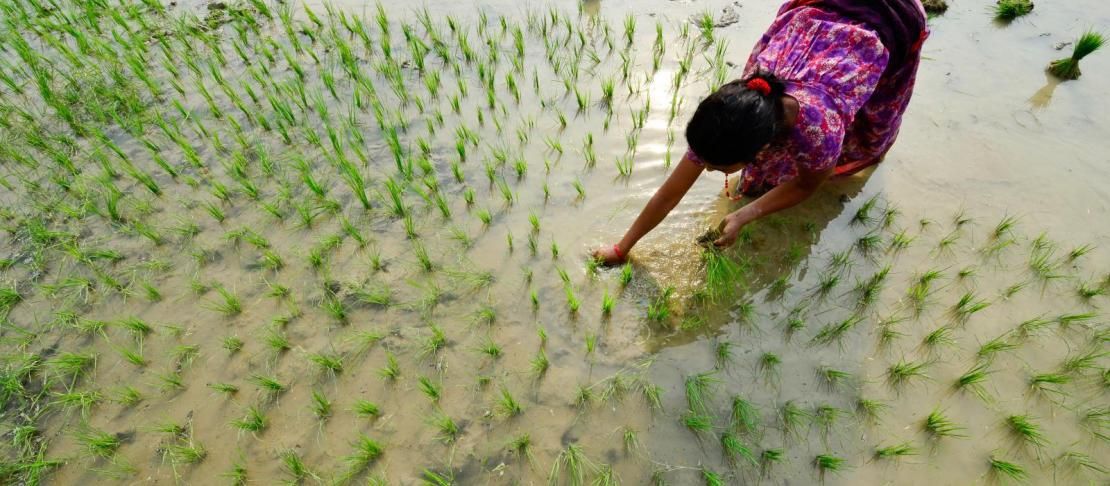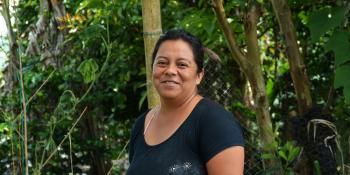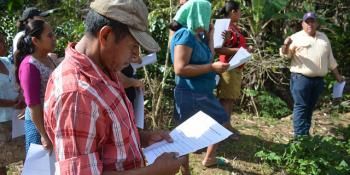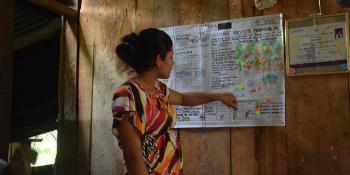Lead firms and farmers work together to keep agriculture climate-smart in Nepal

With nearly 5000 sugarcane farmers trained on climate adaptive practices, that also improve yields, the sugarcane company in the district is noticing record recovery rates
In the Intended Nationally Determined Contribution (INDC) report to the UNFCCC, Nepal states that data trends show that between 1975 and 2005, temperatures increased by 0.06 degree Celsius annually in the country while rainfall decreased by 3.7mm per month every decade.
Various climate scenarios project that temperatures will increase steadily till the 2060s and continue on the same trend to the 2090s, in the absence of any corrective measures.
None of this bodes well for agriculture. Farming is the backbone of the rural economy and with the effects of climate change catching up on agriculture, farmers have to swiftly adopt climate-resilient practices that can increase yields, raise incomes and protect natural resources like water, soils and forests.
Since 2013, CCAFS has been working with Practical Action Consulting, the International Finance Corporation (IFC) and the Government of Nepal on a project based on a private sector partnership model that links farmers to lead agriculture firms and uses training programmes and demonstrations to show them how climate-smart agriculture (CSA) practices and technologies can help them adapt to climate variability.
The project is committed to reach 15,000 farmers and engage with three lead firms, sugarcane, rice and maize, to enhance the long-term productivity of these key crops.
Making sugarcane farming climate resilient
In recent years, sugarcane, a key crop in Nepal, has been victim of the vagaries of the weather. High temperatures, humidity and erratic rainfall have made the crop susceptible to climate-triggered pests and diseases and this has hit yields. Sticking to the old methods of cultivation have resulted in decrease in the sugar recovery rate hence affecting the overall business’ finances. This establishes the requirement of climate-smart agriculture promotion from private sector’s perspective.
In Sunsari district, in the Terai region in southern Nepal, sugarcane farmer Shiv Narayan Mehta says:
Yields have almost doubled since we started adopting farming practices recommended under the project.
Under the project, farmers have been introduced to climate resilient practices through trainings and demonstrations that can help them overcome these yield losses and sell their produce to the large sugar companies.
The project has so far trained 5000 farmers in Sunsari alone through community-based learning programmes and the lead sugarcane company in the district, Eastern Sugar Mills, has noticed record recovery rates.
Watch the video on climate-smart sugarcane cultivation in Sunsari district
The project also covers rice and maize farmers and nearly 4500 rice farmers and 3000 maize farmers have benefitted from the trainings so far. Many of these farmers have attended exposure visits and farmer-farmer learning exchanges.
Intermediary evaluations of the project suggests that more than 80 percent of farmers under the project have adopted at least one climate adaptive practice such as the use of recommended varieties and integrated pest management and nutrient management and water-saving technologies such as direct-seeded rice, zero-till and trench planting method for better irrigation.
Lessons and the way forward
Some of the lessons so far from the project indicate that involving small and medium enterprises at an early stage of the project has helped in extension activities and therefore greater adoption of climate-smart practices.
This specifically includes trainings of the agro vets and service providers in regards to climate-smart agriculture practices and technologies.
Further, with an intention to nurture field level change agents, selected lead farmers are linked with the private sectors apart from training them on the new technologies alone. The lead farmers are expected to continue demonstrating the new practices in their plots for fellow farmers to visit and observe the difference. This has ensured that the benefit of practicing the climate-smart cultivation methods distributes both to the farmers and the private sectors engaged in the project.
Milan Joshi is a Project Development Officer at Practical Action Consulting, Nepal.



